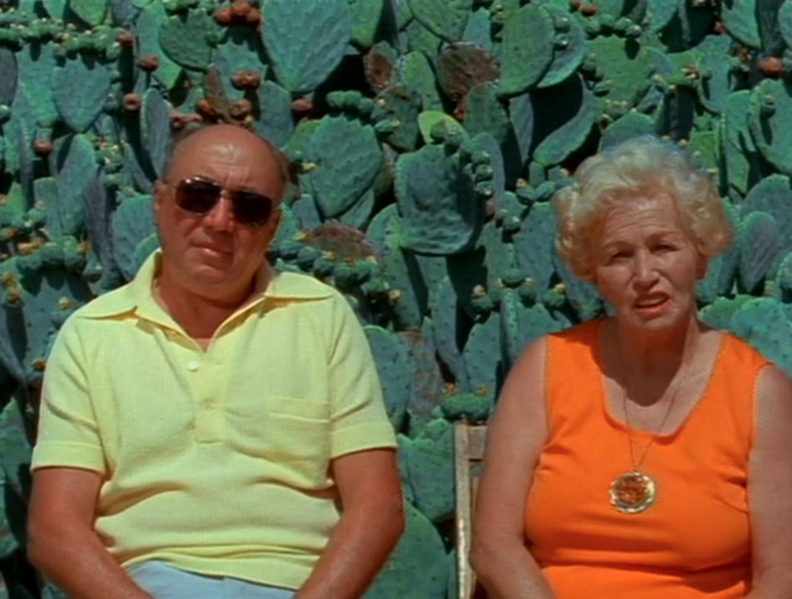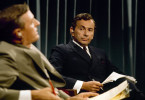Gates of Heaven
Director: Errol Morris
(Blu-ray/DVD)
B+
I do not think shoes are meant to be eaten. Hypothetically, though, if something did encourage one to chomp a loafer — like a cascade down the verge of starvation, or maybe as motivation for a potential-ridden, yet lethargic student — it would probably be worth noting when the leathery meal does occur. Though the former is presumably more common, the latter (endeavored upon by legendary documentarian Werner Herzog) was a direct result of Errol Morris’ less than punctual completion of his directorial debut, Gates of Heaven. Given that it was obviously produced during the infancy of the filmmaker’s career, it may go without saying that the piece lacks the accessibility of his later works, such as The Thin Blue Line and The Fog of War. Gates of Heaven does, however, offer a pleasant look at a peculiar and unexplored corner of Americana while simultaneously setting the foundation for Morris’ stylistically minimal form of characterization he would eventually grow famous for.
The film is conveyed in two movements, trailing pet cemetery entrepreneurs Floyd “Mac” McClure and John “Cal” Harberts near San Francisco. Both arcs yield juxtaposed narratives. Mac, a heavily spiritual individual, pursues the mildly grim endeavor after the death of his beloved collie, taking particular note of the beauty of the plot of land he had acquired. Shortly after Mac’s work collapses, he is forced to yield several hundred cuddly cadavers to Cal’s memorial garden, Bubbling Well. Cal is aided by his two sons, one of whom fosters a fondness for playing electric guitar atop a hill overlooking the animals’ sanctuary of slumber. Cal, unlike Mac, does not bolster so much of an existential obligation to bury pets, but he motivates himself on the platform of artistry. As it turns out, beauty seems to go hand-in-hand with proper burials.
Speckled throughout the primary narrative strain are brief conversations with former pet owners who have laid their loved ones to rest with Mac or Cal. These animal enthusiasts give the film a bit more weight. Often the center of attention for several unyielding (and probably unedited) minutes at a time, the process of storytelling and the anxiety of being in front of a camera tend to converge.
The speakers’ rhetoric does frequently warrant a chuckle (especially when a woman howls alongside her operatic Boston terrier). But to suggest that Morris engages in a form of ridicule is outlandish. Given the subject matter, the humor isn’t difficult to reach for, yet Morris never really frames it as such.
Gates of Heaven does come off as a bit untrained, however. Perhaps due to production costs, a score is almost entirely omitted, save the aforementioned terrier and Cal’s son’s periodic guitar solos. Maybe a focus on ambience was the intent, but the lack of stimuli makes the piece a dry at moments. In tandem with this, the Californian countryside is nothing short of gorgeous, but the camerawork never really compounds that in any innovative fashion. Then again, it may have been best to refrain. How else could you convey the near-objectivity Morris emits on a consistent basis? Regardless, there seems to be a bit of a void in terms of transition. Fortunately, it appears to have been corrected over the last few decades.
Herzog luckily did not eat his shoe in vain. Gates of Heaven isn’t the most readily consumed film, but if you lend an ear to it, the logic behind the late Roger Ebert’s famous designation — one of the 10 best films ever made — quietly surfaces. If anything, the film set an optimistic precedent for a flourishing body of work. Praise be to the documentary gods for getting Morris off his ass.





